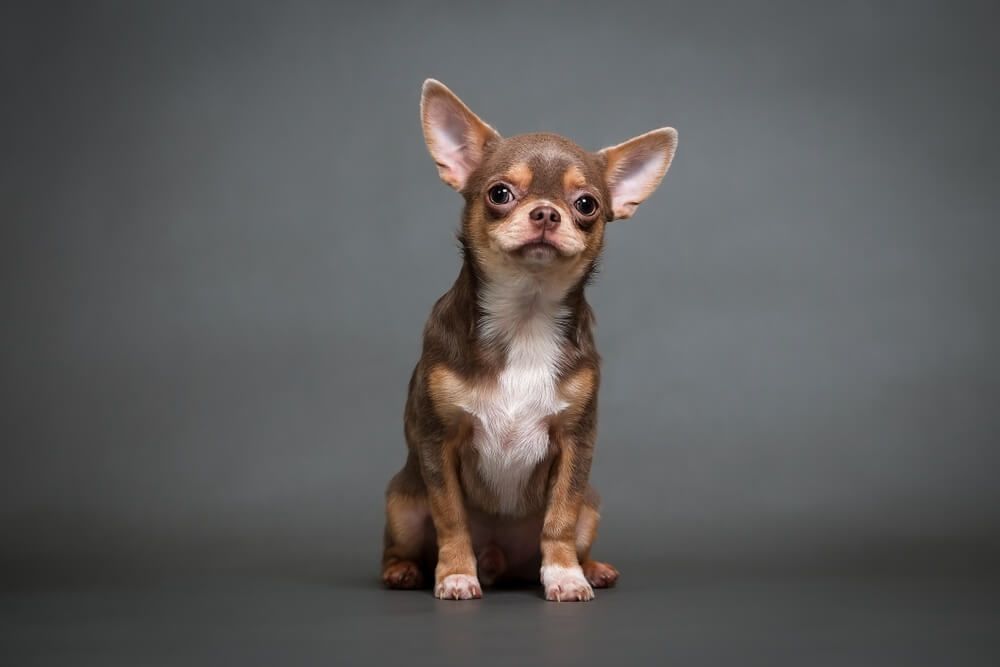First paragraph: Have you ever wondered why chihuahuas are so popular as pets? These pint-sized pups may be small in size, but they come with a big personality. Did you know that chihuahuas are one of the oldest dog breeds in the Americas, dating back over 3,000 years? Their small stature and fierce loyalty make them a sought-after companion for many dog lovers.
Second paragraph: Chihuahuas are not only known for their long history, but they also make great pets for various reasons. Despite their tiny size, they have a lot of energy and can be quite playful. Additionally, chihuahuas are highly adaptable and can thrive in different living environments, including apartments. In fact, they are one of the most popular dog breeds in urban areas. If you’re looking for a loving and devoted companion who will bring joy to your life, a chihuahua might just be the perfect choice for you.
Considering Getting a Chihuahua? Factors to Consider:
- Size: Chihuahuas are small, compact dogs, ideal for apartment living.
- Exercise Needs: They require regular walks and playtime to stay active and healthy.
- Temperament: Chihuahuas can be feisty and protective, requiring proper socialization and training.
- Maintenance: Their short coat is low-maintenance, but dental care and regular check-ups are crucial.
- Compatibility: Chihuahuas may not be suitable for families with young children.
Consider these factors to determine if a Chihuahua is the right fit for your lifestyle and preferences.

Do I Want a Chihuahua?
Are you considering getting a dog and wondering if a Chihuahua is the right fit for you? These pint-sized pooches are known for their big personalities and adorable looks, but owning a Chihuahua comes with its own set of considerations. In this article, we’ll delve into the world of Chihuahuas and help you make an informed decision about whether or not a Chihuahua is the right companion for you.
The Size Factor: Small Dog, Big Personality
One of the defining characteristics of Chihuahuas is their small size. With an average height of between six to nine inches and weighing no more than six pounds, they are considered one of the smallest dog breeds. While their size makes them easily portable, it’s important to note that their small stature does not diminish their big personalities. Chihuahuas are known for their spunky and sassy dispositions. They are confident, intelligent, and often assertive. If you are looking for a dog that will provide excitement and entertainment, a Chihuahua may be the right choice for you.
However, their small size can also be a challenge in certain situations. They are delicate and can be easily injured if mishandled or accidentally stepped on. Additionally, they may be more prone to health issues such as dental problems, patellar luxation, and hypoglycemia. Regular vet check-ups and proper care are essential to ensure the well-being of your Chihuahua.
Exercise and Energy Level: A Bundle of Energy
Despite their tiny size, Chihuahuas are surprisingly energetic. They have a lot of energy packed into their small bodies, so it’s essential to provide them with regular exercise and mental stimulation. Daily walks and playtime are a must to keep them physically and mentally engaged. Chihuahuas also enjoy activities such as puzzle toys, training sessions, and games of fetch. Keep in mind that their small size means they may tire more quickly than larger dogs, so shorter bursts of exercise may be more suitable for them.
If you have a busy lifestyle or limited space, you may need to consider whether you can provide the necessary exercise and stimulation for a Chihuahua. They are not suited to a sedentary lifestyle and may develop behavioral issues if not adequately exercised.
Training and Socialization: Small Dog, Big Attitude
Chihuahuas are intelligent dogs, but they can also be stubborn and independent. This means that consistent training and socialization from an early age are crucial. While they can learn quickly when properly motivated, they may also develop a “small dog syndrome” if not trained correctly. This syndrome refers to behaviors such as excessive barking, aggression, and possessiveness, which can arise when a dog feels the need to compensate for their small size.
Socialization is also vital for Chihuahuas to prevent them from becoming excessively timid or fearful. Exposing them to various people, animals, and environments will help them develop into well-rounded and confident dogs. Their small size makes them more vulnerable in social situations, so teaching them appropriate behavior and ensuring their safety is of utmost importance.
Compatibility with Children and Other Pets
If you have children or other pets in your household, it’s essential to consider their compatibility with a Chihuahua. Due to their small size, Chihuahuas may be more prone to injury if handled roughly by young children, so supervision is necessary when they interact. Additionally, Chihuahuas are known for their sassiness and may not tolerate the antics of younger children. It’s crucial to teach both the children and the Chihuahua how to interact appropriately to prevent any accidents or negative experiences.
When it comes to other pets, Chihuahuas can coexist well with other dogs and cats if properly introduced and socialized. However, their assertive personality may sometimes lead to conflicts with larger dogs, so careful monitoring is necessary. Each pet’s individual temperament should also be taken into account when considering adding a Chihuahua to your household.
Grooming and Maintenance: Little Dogs, Big Care
Chihuahuas have short coats, but that doesn’t mean they require minimal grooming. Regular brushing is still necessary to keep their coats healthy and free from shedding. They may also require occasional baths and nail trims. Additionally, due to their small size, dental care is especially important for Chihuahuas as they are prone to dental issues. Regular brushing and dental check-ups can help prevent dental disease and keep their teeth in good condition.
Another aspect to consider is their susceptibility to cold weather. Chihuahuas are more sensitive to low temperatures due to their small size and lack of protective fur. If you live in a colder climate, you will need to take extra precautions to keep your Chihuahua warm and comfortable, such as providing them with sweaters or jackets.
The Cost of Chihuahua Ownership
While Chihuahuas may be small in stature, the cost of owning one should not be underestimated. Beyond the initial purchase price, there are ongoing expenses to consider. These can include veterinary care, grooming, food, toys, and supplies. Additionally, if you need to travel, you will need to factor in the cost of pet boarding or finding a pet sitter. It’s important to evaluate your budget and ensure you can provide for all the needs of a Chihuahua before welcoming one into your home.
Final Thoughts
Deciding whether or not you want a Chihuahua requires careful consideration of various factors such as their size, energy level, training needs, compatibility with children and other pets, grooming requirements, and overall cost. While they may not be suitable for everyone, Chihuahuas can bring joy, entertainment, and companionship to the right owners. If you can provide the necessary care, attention, and love that a Chihuahua requires, they can make a wonderful addition to your family.
Remember, bringing a dog into your life is a long-term commitment. Take the time to research, understand the breed, and assess your own lifestyle and capabilities before making a decision. If you decide that a Chihuahua is indeed the perfect match for you, get ready for a bundle of love and sass wrapped in a tiny package!
Key Takeaways: Do I Want a Chihuahua?
- Chihuahuas are small and adorable dogs that make great companions.
- They require minimal exercise and are suitable for small living spaces.
- Chihuahuas can be a bit stubborn and may require consistent training and socialization.
- They have delicate health and may need extra care and regular vet check-ups.
- Considering your lifestyle, preferences, and ability to meet their needs is important before deciding if a Chihuahua is the right pet for you.
Frequently Asked Questions
Considering adding a chihuahua to your life? Here are some common questions you may have.
1. What are the key characteristics of a chihuahua?
Chihuahuas are small dogs known for their big personalities. They are typically loyal, affectionate, and highly alert. Due to their diminutive size, they make great companion animals for people living in apartments or small spaces. However, it’s important to note that chihuahuas can be prone to excessive barking and may not get along well with young children or larger pets. Training and socialization are crucial to ensure a well-behaved chihuahua.
Additionally, chihuahuas require minimal exercise, making them suitable for individuals or families with a less active lifestyle. They also tend to bond closely with their owners and thrive on attention and affection.
2. Are chihuahuas good with kids?
Chihuahuas can be good with kids, but it depends on various factors. Chihuahuas are generally not recommended for families with young children. This is because chihuahuas are fragile and can easily get injured if mishandled. Their small size may also make them feel intimidated or frightened by the unpredictable movements of young children.
That being said, if a chihuahua is properly socialized from a young age and introduced to respectful, gentle children, they can develop a good relationship. Older, well-behaved children who understand how to interact with small dogs tend to have a better experience with chihuahuas.
3. Do chihuahuas require a lot of grooming?
Chihuahuas have a short, smooth coat that requires minimal grooming compared to other breeds. Regular brushing with a soft-bristled brush or grooming mitt can help keep their coat healthy and remove any loose hairs. Chihuahuas are also known for shedding, so a weekly brushing can help minimize hair around the house.
Additionally, chihuahuas have sensitive skin, so it’s important to use a gentle shampoo when bathing them. Their nails should be trimmed regularly, and their teeth should be brushed to maintain overall dental health. Overall, chihuahuas are relatively low-maintenance when it comes to grooming.
4. Are chihuahuas easy to train?
Chihuahuas can be a bit challenging to train compared to some other breeds. They are known for their independent nature and can sometimes have a stubborn streak. However, with patience, consistency, and positive reinforcement techniques, chihuahuas can learn and obey commands.
Early socialization and basic obedience training are essential for a well-behaved chihuahua. Positive reinforcement methods, such as rewarding with treats and praise, tend to be more effective than punishment-based training approaches. Consistency and regular training sessions will help in overcoming any training difficulties and building a strong bond with your chihuahua.
5. How long do chihuahuas generally live?
Chihuahuas have a relatively long lifespan compared to larger dog breeds. On average, they can live anywhere between 12 to 20 years. However, individual chihuahuas may vary in their lifespan depending on factors such as genetics, overall health, and lifestyle.
To maximize the lifespan of your chihuahua, it’s important to provide them with proper nutrition, regular veterinary care, exercise, mental stimulation, and a safe and loving environment. Regular check-ups with a veterinarian can help detect and address any health issues early on, ensuring a longer and healthier life for your chihuahua companion.

So you think you want a chihuahua?👀 #madithechihuahua #dog
To wrap up, it’s important to maintain a professional tone while still keeping in mind that our reader is a 13-year-old. That means using simple language and staying away from complicated jargon. Let’s make sure each sentence is concise and presents just one idea, with no more than 15 words per sentence. The goal is for the reader to come away with a clear understanding of the article’s main points in just two paragraphs.
